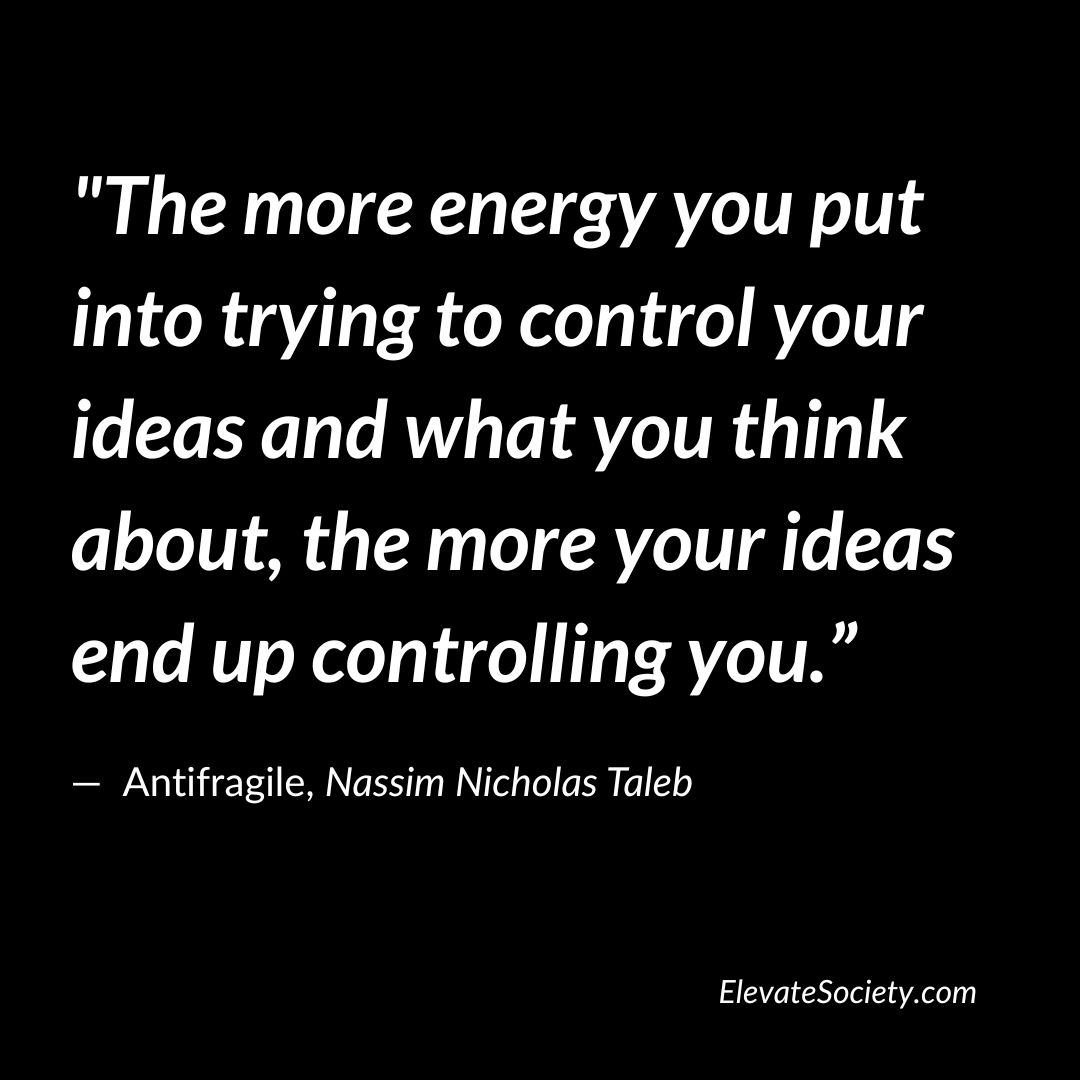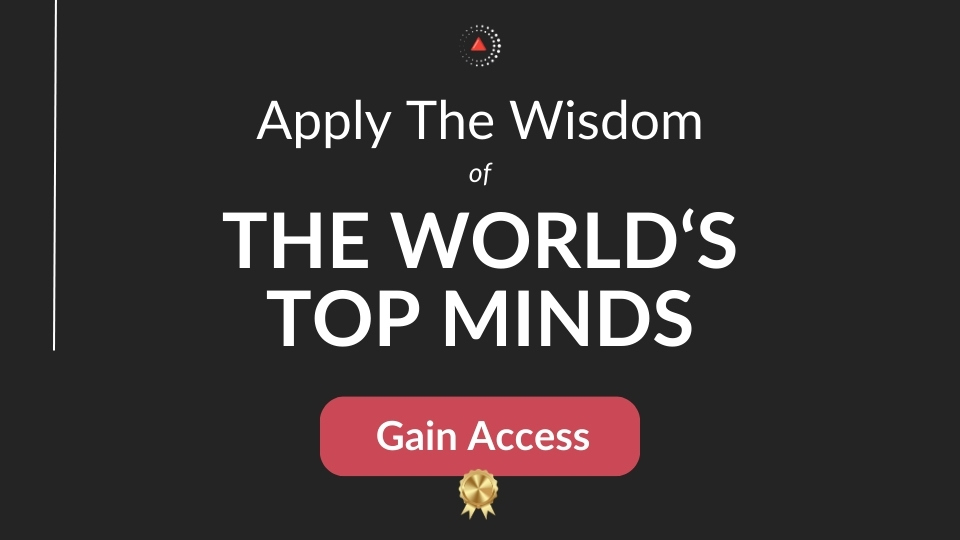43 Top Quotes From Antifragile
In "Antifragile," Nassim Nicholas Taleb introduces a groundbreaking concept that challenges conventional thinking about resilience and adaptability. Unlike traditional systems that are merely resilient (able to withstand shocks without breaking), Taleb argues for embracing antifragility—the ability to thrive and improve in the face of volatility, randomness, and uncertainty. Drawing upon examples from various fields, such as finance, biology, and philosophy, Taleb presents a compelling case for designing systems that benefit from chaos and disorder rather than merely surviving them. By actively seeking challenges and exposing ourselves to controlled risks, we can cultivate antifragility in our personal and professional lives. This provocative and enlightening book encourages readers to reevaluate their aversion to uncertainty and adopt a mindset that not only tolerates but embraces the unpredictable nature of the world. (Antifragile Summary)
43 Top Quotes From Antifragile
 1. [Favorite Quote]: "The more energy you put into trying to control your ideas and what you think about, the more your ideas end up controlling you.” (Meaning)
1. [Favorite Quote]: "The more energy you put into trying to control your ideas and what you think about, the more your ideas end up controlling you.” (Meaning)
2. “Antifragility is beyond resilience or robustness. The resilient resists shocks and stays the same; the antifragile gets better.”
3. “Difficulty is what wakes up the genius”
4. “Only the autodidacts are free.”
5. "Obvious decisions require no more than a single reason.”
6. "He who has never sinned is less reliable than he who has only sinned once. And someone who has made plenty of errors—though never the same error more than once—is more reliable than someone who has never made any.”
7. "Procrastination is our natural defense, letting things take care of themselves and exercise their antifragility; it results from some ecological or naturalistic wisdom, and is not always bad"
8. "A loser is someone who, after making a mistake, doesn’t introspect, doesn’t exploit it, feels embarrassed and defensive rather than enriched with a new piece of information, and tries to explain why he made the mistake rather than moving on. "
9. "If there is something in nature you don't understand, odds are it makes sense in a deeper way that is beyond your understanding."
10. "The richer we become, the harder it get to live within our means. Abundance is harder for us to handle than scarcity.”
11. "What Mother Nature does is rigorous until proven otherwise; what humans and science do is flawed until proven otherwise.”
12. "We need randomness, mess, adventures, uncertainty, self-discovery, near-traumatic episodes, all those things that make life worth living, compared to the structured, fake, and ineffective life of an empty-suit CEO with a preset schedule and an alarm clock.”
13. "Be bored with a specific book, rather than with the act of reading. "
14. “I want to live happily in a world I don’t understand.”
15. "Never ask the doctor what you should do. Ask him what he would do if he were in your place. You would be surprised at the difference"
16. “This is the tragedy of modernity: as with neurotically overprotective parents, those trying to help are often hurting us the most.”
17. “Suckers try to win arguments, nonsuckers try to win.”
18. “Most humans manage to squander their free time, as free time makes them dysfunctional, lazy, and unmotivated—the busier they get, the more active they are at other tasks.”
19. “You may never know what type of person someone is unless they are given opportunities to violate moral or ethical codes.”

20. “The simpler, the better. Complications lead to multiplicative chains of unanticipated effects.”
21. “Never ask anyone for their opinion, forecast, or recommendation. Just ask them what they have—or don’t have—in their portfolio.”
22. “Success brings an asymmetry: you now have a lot more to lose than to gain. You are hence fragile.”
23. “Some things benefit from shocks; they thrive and grow when exposed to volatility, randomness, disorder, and stressors and love adventure, risk, and uncertainty.”
24. “Never trust the words of a man who is not free.”
25. “More data—such as paying attention to the eye colors of the people around when crossing the street—can make you miss the big truck.”
26. “More data means more information, but it also means more false information.”
27. "We are largely better at doing than we are at thinking, thanks to antifragility. I’d rather be dumb and antifragile than extremely smart and fragile, any time.”
28. “Much of what other people know isn’t worth knowing.”
29. “A Stoic is a Buddhist with attitude, one who says “f*** you” to fate.”
30. “Since procrastination is a message from our natural willpower via low motivation, the cure is changing the environment, or one’s profession, by selecting one in which one does not have to fight one’s impulses"
31. “It is only when you don’t care about your reputation that you tend to have a good one.”
32. “The best horses lose when they compete with slower ones, and win against better rivals.”
33. “Keeping one’s distance from an ignorant person is equivalent to keeping company with a wise man.”
34. “We ingest probiotics because we don’t eat enough “dirt” anymore.”
35. "Knowledge grows by subtraction much more than by addition—given that what we know today might turn out to be wrong but what we know to be wrong cannot turn out to be right, at least not easily.”
36. "Failure and disconfirmation are more informative than success and confirmation"
37. “A man is honorable in proportion to the personal risks he takes for his opinion.”
38. “The excess energy released from overreaction to setbacks is what innovates!”
39. “If humans fight the last war, nature fights the next one.”
40. “Those who do too much somewhere do too little elsewhere"
41. "If you see fraud and do not say fraud, you are a fraud.”
42. “Just as in matters of seduction, people lend the most to those who need them the least.”
43. "A little bit of agitation gives resources to souls and what makes the species prosper isn’t peace, but freedom.”
― Quotes from the book Antifragile by Nassim Nicholas Taleb
Antifragile Author
Nassim Nicholas Taleb, a renowned author, statistician, and former Wall Street trader, is a captivating thinker who challenges conventional wisdom and our understanding of risk. His most influential work, "The Black Swan," explores the impact of highly improbable and unpredictable events on our lives, economies, and societies. Taleb's insights reveal that these rare but game-changing occurrences play a far more significant role in shaping history than we tend to acknowledge. He introduces the concept of "antifragility," highlighting systems that thrive and grow stronger in the face of volatility and uncertainty. Taleb's unique perspective encourages individuals and institutions to embrace uncertainty, build resilience, and adapt to an ever-changing world.
Chief Editor
 Tal Gur is an author, founder, and impact-driven entrepreneur at heart. After trading his daily grind for a life of his own daring design, he spent a decade pursuing 100 major life goals around the globe. His journey and most recent book, The Art of Fully Living, has led him to found Elevate Society.
Tal Gur is an author, founder, and impact-driven entrepreneur at heart. After trading his daily grind for a life of his own daring design, he spent a decade pursuing 100 major life goals around the globe. His journey and most recent book, The Art of Fully Living, has led him to found Elevate Society.


























